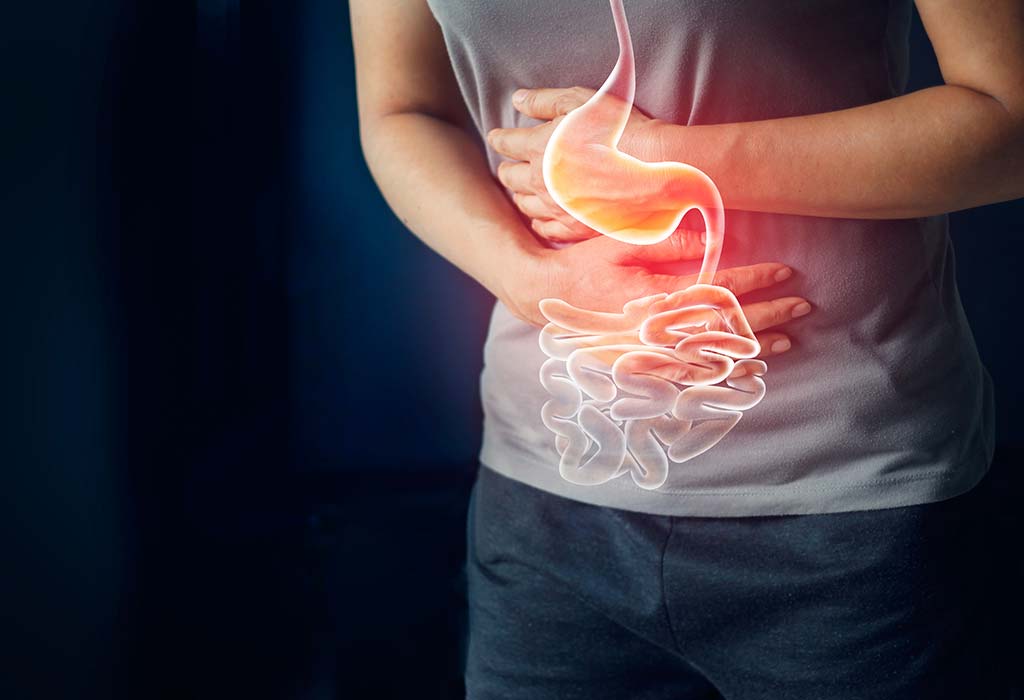Indigestion

Indigestion is a condition which can be pain or discomfort in your upper abdomen (Dyspepsia) or burning pain behind the breastbone (Heartburn).
Dyspepsia and heartburn may occur together or on their own.
Symptoms
– Feeling sick
– Feeling uncomfortably full or heavy
– Feeling full or bloated
– Belching or farting
– Bringing up food or bitter-tasting fluids or food into your mouth
– Heartburn, a painful burning feeling in the chest, often after eating
Causes
1) Medications
Nonsteroidal anti-inflammatory drugs (NSAIDs), such as ibuprofen, naproxen are one class of medications that can affect your digestive tract and cause indigestion.
2) Obesity
If you are very overweight, you are more likely to experience indigestion because of increased pressure inside your stomach. The increased pressure, particularly after a heavy meal, may lead to acid reflux into the oesophagus.
3) Overeating or eating too fast
4) Fatty, spicy and acidic foods
5) Smoking & drinking too much alcohol
6) Stress and anxiety
TREATMENTS
Medications
A) Antacids (Maalox plus)
Antacids are a type of medicine that can provide immediate relief for mild to moderate symptoms of indigestion. They work by neutralising the acid in your stomach (making it less acidic), so that it no longer irritates the lining of your digestive system.
B) Proton pump inhibitor (Controloc, Vencid), which can reduce stomach acid. PPIs may be recommended if you experience heartburn along with indigestion.
C) Histamine-2 Blockers (Famotidine), which can also reduce stomach acid.
D) Prokinetics (Motilium), which may be helpful if your stomach empties slowly.
E) Alginates (Gaviscon).
Some antacids contain a medicine called as alginate. This helps relieve indigestion caused by acid reflux. Alginates form a foam barrier that floats on the surface of your stomach contents, keeping stomach acid in your stomach and away from your oesophagus.
Alternative Treatments
A) Probiotics (Megalive FloraMax Plus, Megalive Flora 60 Plus, Hexbio, Bioflor), good bacteria exist in gut can limit the growth of bad bacteria and improve gut function.
B) Digestive Enzymes (Blackmores Digestive)
C) Aloe Vera Juice (Lifestream Aloe Vera Juice), reduce reflux symptoms by reducing acid production, boosting digestion and having anti-inflammatory properties.
D) Ginger helps to speed up emptying of stomach, thus helps in relieving indigestion and heartburn.
Diet
Lifestyle Remedies
– Eating smaller and more frequent meals. Chew your food slowly and completely.
– Do not chew with your mouth open, talk while chewing or eat quickly. This causes you to swallow air and can aggravate indigestion.
– Maintaining a healthy weight. Excess weight put pressure on your stomach, making it easier for stomach acid to be pushed back up into your oesophagus. This is known as acid reflux, and is one of the most common causes of indigestion.
– Avoid late night eating for three to four hours before you go to bed. Going to bed with a full stomach means there is an increased risk that acid in your stomach will be forced up into your oesophagus while you are lying down.
– Quit smoking. If you smoke, the chemicals you inhale in cigarette smoke may contribute to your indigestion.
– Drink fluids after meals, rather than during meals.
– Avoid alcoholic beverages
– Avoid drinks that contain caffeine – such as tea, coffee and cola.
– Avoid spicy and greasy foods.
– Managing stress. Practice relaxation techniques such as deep breathing, meditation or yoga.






